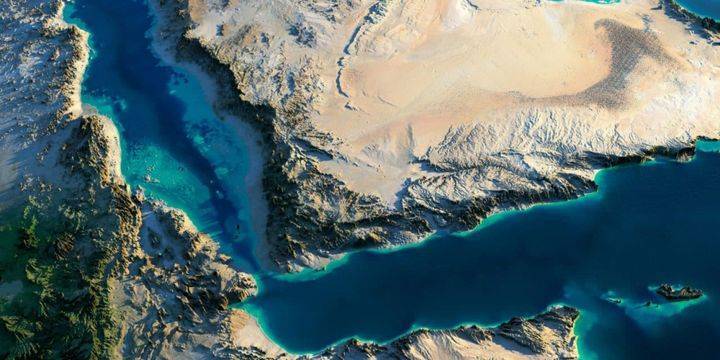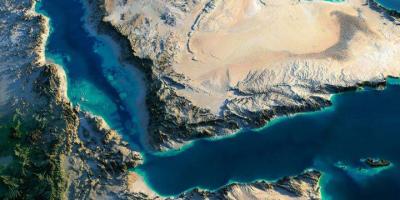The Houthis in Yemen are targeting ships in the southern Red Sea and Bab el-Mandeb Strait in attacks that the movement claims are aimed at supporting Palestinians in their conflict against Israel's war on Hamas. The attacks have disrupted the flow of global trade, with shipping and oil companies stating they will avoid the Suez Canal, increasing shipping costs and prolonging routes as vessels opt to reroute around the African continent.
**Why Are the Houthis Attacking Ships?**
- The attacks are in support of Hamas in its war against Israel in the Gaza Strip.
- The Gaza conflict has led to the United States and its allies siding with Israel, while Iran and armed Arab groups allied with Tehran have sided with Hamas, raising the risk of a broader conflict in the Middle East.
- The Houthis, who control most of Yemen, have stated that they will target all ships heading to Israel regardless of their nationality and have warned global shipping companies against dealing with Israeli ports.
**What Ships Have Been Targeted by the Houthis?**
- **December 18**: U.S. officials reported that the Norwegian-owned vessel Svan Atlantic was attacked in the southern Red Sea by several projectiles originating from Houthi-controlled areas.
- **December 16**: U.S. Central Command stated that its destroyer Carney shot down 14 drones launched by the Houthis in the Red Sea.
- **December 15**: An American defense official noted that a projectile launched from Houthi-controlled territory in Yemen struck the German-owned ship Al-Jasra, flagged in Liberia, causing a fire without injuries.
- **December 15**: Maersk denied claims by the Houthis of a drone operation against a Maersk ship heading to Israel but confirmed the vessel was targeted by a missile. Shipping sources indicated that Maersk Tankers vessels might divert to route around the Cape of Good Hope due to deteriorating security conditions in the Red Sea.
- **December 12**: A Houthi spokesperson claimed an attack on the Norwegian commercial tanker Strinda, which took place approximately 111 kilometers north of Bab el-Mandeb at around 2100 GMT, according to a U.S. official.
- **December 10**: The French Ministry of Defense reported that a warship in the Red Sea shot down two drones that were approaching from the Yemeni coast.
- **December 3**: The U.S. military reported that three commercial vessels were attacked in international waters in the southern Red Sea, with the Houthis claiming responsibility for drone and missile attacks on two Israeli ships in the area.
- **November 19**: Israel stated that the Houthis had seized a British-owned cargo ship managed by Japan in the southern Red Sea.
**What is Bab el-Mandeb and Its Importance?**
- Bab el-Mandeb Strait is the southern entrance to the Red Sea, situated between Yemen on the Arabian Peninsula and Djibouti and Eritrea on the African coast.
- It is one of the critical waterways for global maritime shipments, particularly crude oil and fuel from the Gulf to the Mediterranean via the Suez Canal or the SUMED pipeline along Egypt's Red Sea coast, as well as goods destined for Asia, including Russian oil.
- The strait was the site of a naval blockade enforced by Egypt on Israel during the October War in 1973.
- Bab el-Mandeb is 29 kilometers wide at its narrowest point, making tanker movement difficult, limited to two shipping channels in and out of the Red Sea, separated by Perim Island.
- Approximately 7.80 million barrels per day of crude oil and fuel shipments passed through the strait in the first 11 months of 2023, up from 6.60 million barrels per day throughout 2022, according to oil analytics firm Vortexa. The same firm recorded an average of 27 tankers carrying crude or fuel crossing daily in 2023, rising from 20 the previous year.
- According to the Energy Information Administration, 12% of total seaborne oil transported in the first half of 2023 and 8% of liquefied natural gas trade passed through Bab el-Mandeb, the SUMED pipeline, and the Suez Canal.
**How Have the Attacks Affected Global Trade?**
- Major shipping companies such as Hapag-Lloyd, MSC, Maersk, BP, and Frontline Tankers stated they would avoid the Red Sea route and reroute to the Cape of Good Hope for the time being.
- Many container ships paused in the Red Sea, while others halted tracking systems as companies altered routes and prices in response to the attacks.
**What Measures Are Being Taken to Protect Ships?**
- U.S. Defense Secretary Lloyd Austin stated on December 19 that the United States would lead a multinational operation to protect trade in the Red Sea.
- Austin added that Britain, Bahrain, Canada, France, Italy, the Netherlands, Norway, Seychelles, and Spain are among the countries participating in the security operation in the Red Sea known as "Operation Prosperity Guardian."
- However, sources indicated that Saudi Arabia seeks to contain any repercussions of Israel's war with Hamas and has asked the United States to exercise restraint in responding to attacks in the Red Sea.
- The international community has previously relied on naval forces to protect shipping from piracy off the Horn of Africa, particularly arising from Somalia, with piracy incidents peaking between 2005 and 2011.




